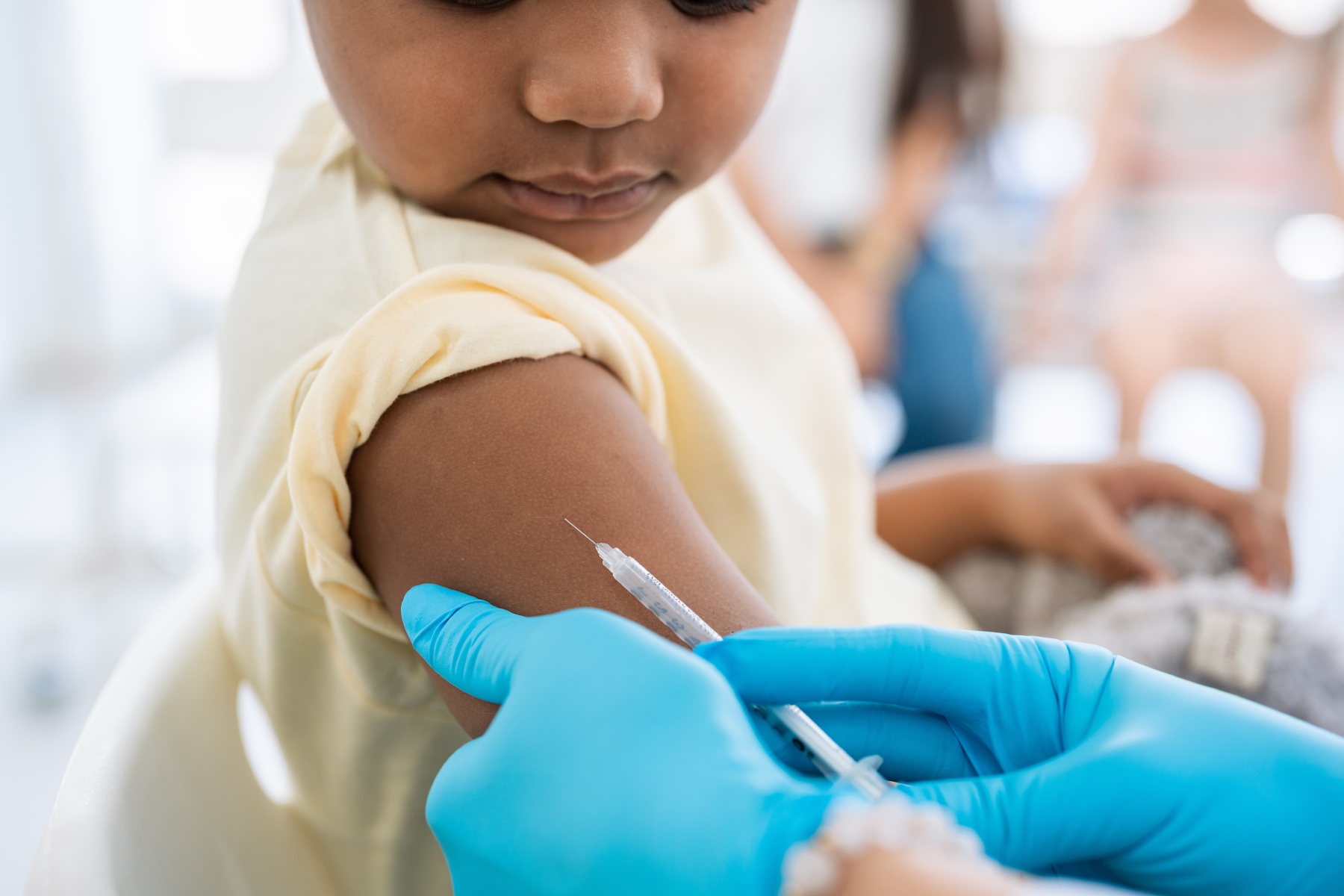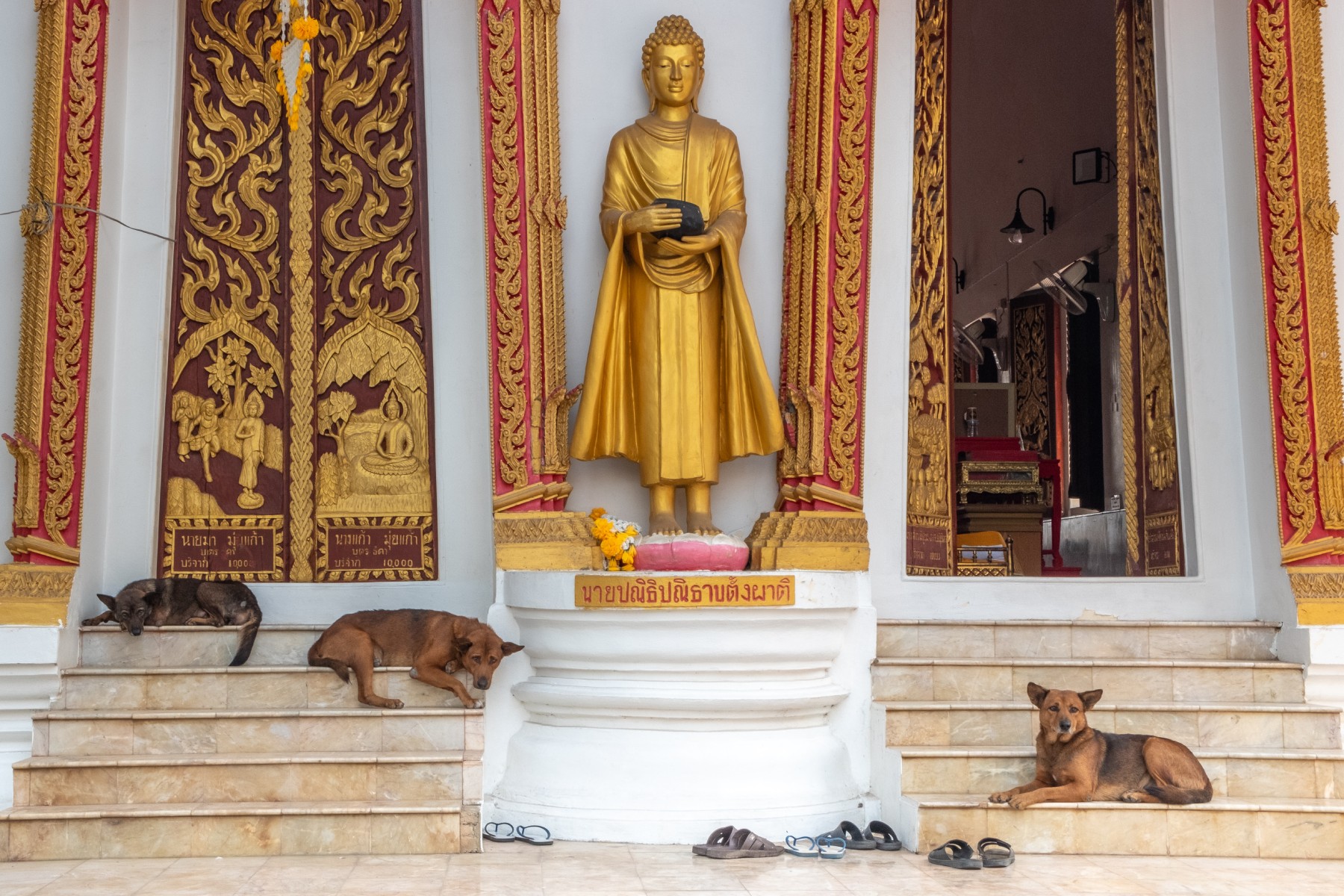If recent years have proven anything, it’s that vaccinations are central to public health and disease prevention. Through the National Expanded Program on Immunization (EPI), Thailand provides vaccines against various preventable illnesses, such as hepatitis B, measles, and polio.
While free for Thai nationals, expat residents have to arrange them privately. Fortunately, though, private healthcare in Thailand is relatively affordable compared with equivalent services and facilities in the Global North.
Learn more about the vaccination system in Thailand, including travel vaccines, shots for children and pensioners, and other optional or recommended immunizations, by reading the following sections:
- The vaccination system in Thailand
- Are vaccinations covered by insurance in Thailand?
- Thailand’s national vaccination schedule
- The COVID-19 vaccination
- Which vaccinations are recommended for pensioners?
- Which vaccinations are recommended for special groups?
- What travel vaccinations do you need for Thailand?
- Useful resources
Allianz Care
Allianz Care is a world leader in providing international health insurance. Their various premiums provide professionally designed solutions for a variety of expat lifestyles. So, wherever your life takes you, make sure you have the right health protection for you and your family with Allianz Care.
The vaccination system in Thailand
Thailand officially introduced the EPI in 1977, and vaccination checks upon school entry began in 2013. This was supported by the Ministry of Public Health (MoPH) and the Ministry of Education (MoE).

For over 20 years, the EPI achieved vaccine coverage of more than 80% of the population. The National Health Security Office (สำนักงานหลักประกันสุขภาพแห่งชาติ) supervises the program, along with Siriraj Hospital, which is the largest public hospital in the country.
Thai health services offer the following optional and mandatory vaccinations:
| Vaccine | Targeted Disease | Notes |
| BCG | Tuberculosis | |
| DTP | Diphtheria Pertussis Tetanus | |
| DTP-HepB-Hib | Diphtheria, Tetanus, and whooping cough (pertussis) or DTP Polio Hepatitis B Haemophilus influenzae type b | |
| HepB | Hepatitis B | Two doses, six months apart Recommended for healthcare workers and those close to hepatitis B patients |
| HPV | Human papillomavirus | Single or two doses for women and girls aged 15 to 20 years Recommended to protect women and girls against HPV/cervical cancer caused by the HPV virus/immunosuppressed individuals |
| Influenza | Influenza | |
| IPV | Inactive polio | |
| JE LAV | Japanese encephalitis | |
| Meningitis ACWY | Protects against four strains of meningococcal bacteria | Recommended for pilgrims traveling from Thailand to epidemic areas |
| MMR | Measles Mumps Rubella | |
| MR | Measles Rubella | Two doses Recommended for healthcare workers and first-year medical/public health students |
| OPV | Polio | |
| Rotavirus | Rotavirus | |
| Td | Tetanus Diphtheria | |
| Tetanus booster | Tetanus | Recommended every 10 years for all adults over 20 years |
| Zoster vaccine | Shingles (herpes zoster) | Two doses, two to six months apart Recommended for the elderly and other at-risk groups to protect against shingles |
Thailand’s vaccinations for children
Thailand recommends 12 childhood EPI vaccines for babies and children. These are voluntary rather than mandatory.

That said, there are immunization checks for children entering primary school at 6 or 7 years old. Reportedly, more than 90% of children in Thailand receive all 12 EPI vaccinations as part of the Universal Health Coverage (UHC) scheme.
Getting vaccines at a Thai hospital
When you give birth in Thailand, the hospital will offer vaccinations for the newborn. This applies to both public and private facilities. If your child is a little bit older, you’ll need to contact the hospital or vaccine clinic to register them for vaccinations. You can simply walk into the reception and make or wait for an appointment.
The doctor or nurse who administers the shots will provide you with a vaccination record. Notably, private hospitals may offer e-vaccine books, tailor-made vaccine programs, or other services.
Wherever you choose to get vaccinated, you can rest assured that you are in safe hands. Thai healthcare professionals are usually very gentle when giving injections and taking blood.
Are vaccinations covered by insurance in Thailand?
The public healthcare system covers Thai nationals under the Universal Coverage Scheme (UCS). This includes newborn vaccinations and EPI vaccines.
There are limited benefits for expats working in Thailand and paying social security. As such, most foreign residents must arrange shots through private medical insurance or pay out of pocket. Some health insurance packages also offer annual flu shots for free.
Several international health insurance providers operate in Thailand, including:
It’s worth noting that some hospitals may not store all vaccines, especially those not included in the EPI. In this case, if you are in Bangkok, you can contact the Thai Travel Clinic, a clinic of the Hospital for Tropical Diseases, Faculty of Tropical Medicine, Mahidol University. You can make an appointment via the website.

Writer and local expert
Jane Evans
Public hospitals can be very busy and lack English language assistance. Therefore, you can expect long waiting times and it is advisable to take a local friend with you to help translate. Private hospitals and clinics, on the other hand, have English-speaking staff, shorter waiting times, and offer available vaccines on a walk-in basis.
Thailand’s national vaccination schedule
Thailand’s National Immunization Program (NIP) includes the following vaccinations:
| Vaccine name | Targeted Diseases | Timeline |
| BCG | Tuberculosis | At birth |
| Hep-B (pediatric) | Hepatitis B | At birth |
| DTwP-Hib-HepB | Diptheria, Tetanus, Pertussis, Haemophilus influenzae, Hepatitis B | At two, four, and six months |
| OPV | Poliomyelitis | At two, four, and six months |
| RV5 | Rotavirus | At two, four, and six months |
| IPV | Poliomyelitis | At four months |
| MMR | Measles, Mumps, Rubella | At nine months |
| JE | Japanese encephalitis | At 13 months |
| DTwP | DTwP | At 13 months |
| HPV1 and HPV2 | Human papillomavirus | At 11 years |
| Td | Tetanus and diphtheria | At 12 years |
| Influenza | Influenza | From six months of age, annually |
The COVID-19 vaccination
Thailand’s government and Department of Disease Control dealt with COVID-19 very well, offering Thai nationals and expat foreigners free vaccinations during the pandemic.
The country recommends an annual COVID booster shot; you can ask about this at any hospital or clinic.
Which vaccinations are recommended for pensioners?
Thailand recommends the following vaccinations for the elderly:
| Vaccine | Targeted Disease | Target Group |
| COVID | COVID-19 | Pensioners |
| Influenza vaccine | Flu | Pensioners |
| Pneumococcal vaccine | Streptococcus pneumoniae | Pensioners |
| Zoster vaccine | Shingles | Pensioners and immunosuppressed people |
Which vaccinations are recommended for special groups?
Thailand recommends these vaccinations for special groups:
| Vaccine | Targeted Disease | Target Group |
| Influenza vaccine | Common flu | Pregnant people and seniors |
| Whooping cough | Pertussis | Pregnant people in weeks 27–36 |
| Zoster vaccine | Shingles | Pensioners and immuno-suppressed people |
Expectant mothers should see a doctor throughout their pregnancy and receive advice on any vaccines needed. At-risk groups and seniors should also consult their family doctor or GP before having any shots.
What travel vaccinations do you need for Thailand?
Before traveling to Thailand, you should be up to date with the recommended vaccination schedule to help prevent diseases from spreading. Ideally, you should consult with your healthcare practitioner six to eight weeks before your arrival.
The following vaccinations are recommended for Thailand:
- Diphtheria
- Hepatitis A and B
- Japanese encephalitis
- Mumps, measles, rubella
- Rabies
- Tuberculosis
There’s no risk of yellow fever in Thailand. However, if you’re traveling from a country with a risk of yellow fever transmission, you’ll need a yellow fever vaccine certificate.

If you are already in Thailand and need travel shots or boosters, you can get them at a hospital or clinic. The Thai Travel Clinic in Bangkok offers a full list of travel vaccines with a clear price list, as well as a wealth of information and services for expats and a good appointment system. Private hospitals also provide travel shots throughout Thailand.

Writer and local expert
Jane Evans
If you are an animal lover, it might be worth getting rabies shots before you travel to Thailand as there are a lot of dogs, cats, monkeys, and other creatures that carry the disease. However, it is important to leave enough time to do this, as you will usually need three injections spread over 28 days to be protected.
Useful resources
- National Health Security Office (NHSO – สำนักงานหลักประกันสุขภาพแห่งชาติ สปสช) – manages the universal public healthcare service for Thai citizens
- Office of Insurance Commission (OIC) – the regulatory body for the insurance industry in Thailand
- Thai Travel Clinic – a special clinic of the Hospital for Tropical Diseases, Faculty of Tropical Medicine, Mahidol University, which offers vaccinations and transparent pricing
- Center for Disease Control – provides information about travel vaccines for Thailand





